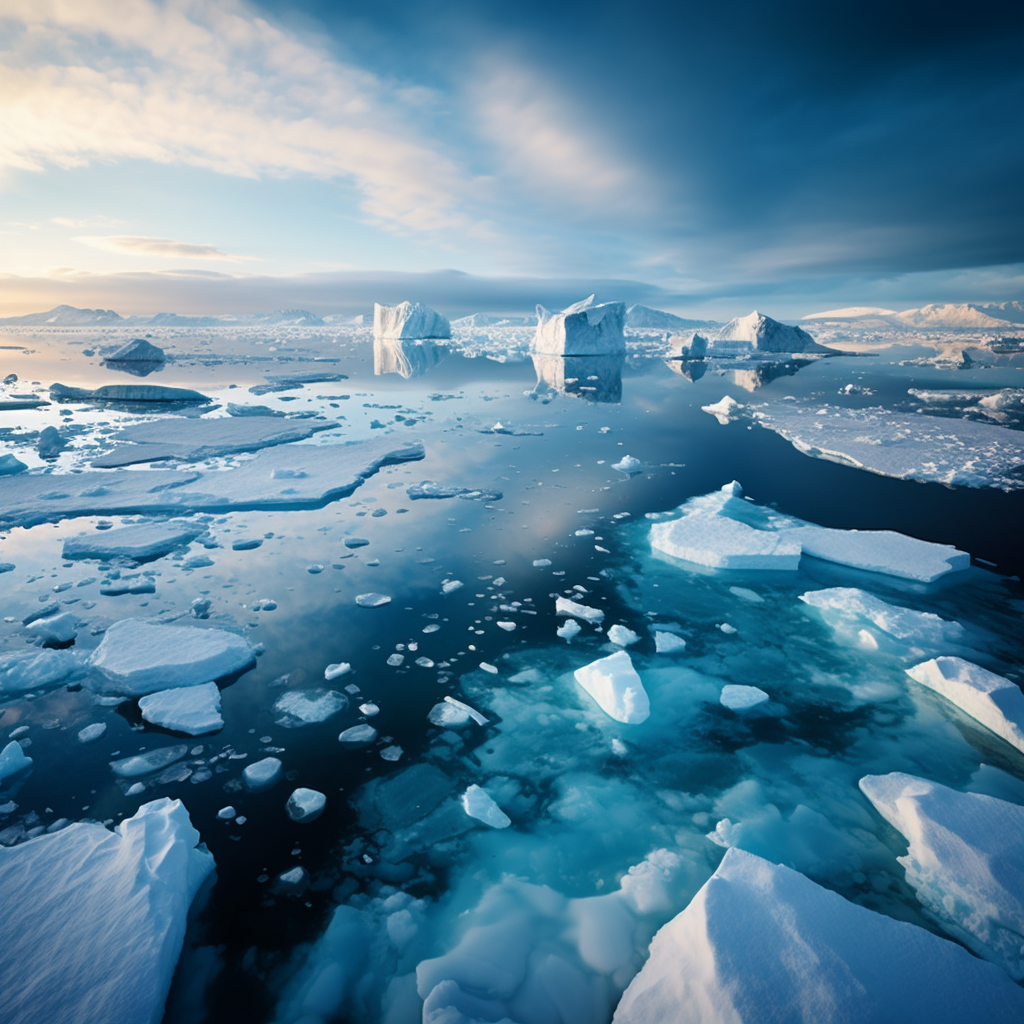December 14, 2023
Arctic Report Card 2023 – Unveiling Alarming Climate Changes
Book a Demo
Sermeq Kujalleq, a formidable and rapidly advancing outlet glacier in Greenland, witnessed a massive calving event on September 7, 2023. This event led to the breakaway of colossal icebergs and smaller ice fragments, which subsequently melted in the ocean waters near Ilulissat, Greenland. This phenomenon is indicative of the drastic climate changes that our planet is experiencing, particularly in the Arctic regions.
The year 2023 was especially significant, as the Arctic experienced its warmest summer since 1900. This surge in temperature directly contributed to numerous disasters, including the devastating floods in Juneau, Alaska, and a particularly destructive wildfire season in Canada.
These rapid changes in the Arctic climate are primarily attributed to human-induced climate change, resulting mainly from the burning of fossil fuels. Astonishingly, the Arctic region is warming nearly four times faster than the global average. This disproportionate rate of warming is causing an irreversible impact on the Arctic ecosystem and contributing to global sea-level rise.
Specifically, in 2023, the Greenland Ice Sheet, known to be a significant contributor to global sea-level rise, lost over an alarming 150 billion tons of ice. Moreover, Greenland’s continual ice loss in the 21st century, including the year 2023, is leading to a surge in the number of icebergs and smaller ice fragments melting in the ocean waters near Ilulissat.
In response to these drastic changes, the Alaska Arctic Observatory and Knowledge Hub (AAOKH) has been employing Indigenous knowledge for monitoring and understanding the ecological changes in the Arctic. The integration of traditional wisdom with modern science offers a holistic approach to understanding the dynamics at play.
The rapid warming of the Arctic due to human-induced climate change is an early warning sign of what the entire globe can expect to face, including new weather patterns and altered wildlife migrations. The Arctic Report Card of 2023 underlined the impacts on key species like salmon, some of which are facing declines linked to climate change. This report further emphasized the importance of incorporating Indigenous knowledge in monitoring ecological changes.
The events of 2023 in the Arctic are clear reminders of the urgency of addressing climate change. As the Earth’s early warning system, the Arctic continues to signal the need for global action, urging us to rethink our relationship with the planet and strive for sustainable practices.
Science4Data is committed to cut through greenwashing and measure real impact. Join the journey to a sustainable future. Your actions matter.



